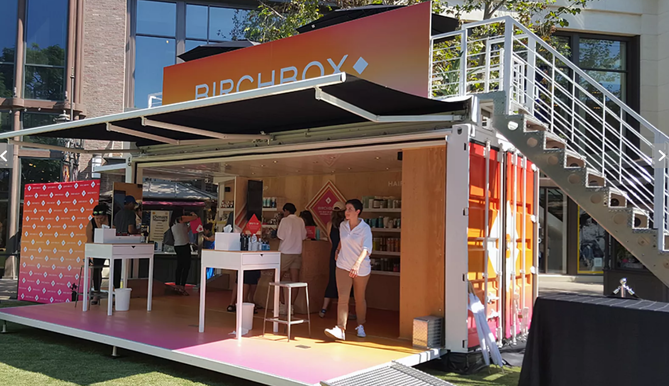How Millennials Are Changing Traditional Consumption Patterns
The millennial generation makes up roughly 75 million of the American population, passing up the current postwar baby boomers generation. This means millennials make up a quarter of the total U.S population and spend about $600 billion in the U.S each year. Event organizers need to understand the millennial audience to promote their event and/or brand effectively and encourage millennials to participate. Harnessing the power of this dynamic, active, socially engaged generation brings real benefits in the artistic, political, technological, and every other kind of industry.
Learn about millennials and how their unique buying power is changing how we traditionally shop and other consumer behaviors.
Who are millennials? Why are they important?
There are various definitions of who belongs in the millennial generation, but a generally accepted rule is that it includes those born between 1981-1996, who are now between 22-37 years old, give or take a  few years. Millennials are characterized by their independent spirits, their abilities to adapt to new technology, their excellent networking skills, and active political participation.
few years. Millennials are characterized by their independent spirits, their abilities to adapt to new technology, their excellent networking skills, and active political participation.
It’s important to know who millennials are because they are the parents of most small children today, especially since the median age for college-educated women to have a first child has climbed to around age 31 in most major cities.
Millennials have considerable buying power as they settle into the middle part of their careers and start climbing up the ladder. Plus millennials are often go-getters and entrepreneurs who operate very successful businesses through the power of collaboration, fast integration of technology, and impeccable networking skills.
What do millennials value when buying and
how do they differ from traditional buying patterns?
Millennials are unique because they are the first generation to grow up spending large chunks of time online. Sure, it was most likely dial-up, but plenty of millennials smile at the thought of hearing that old screech of the dial-up modem connecting to the internet. Many millennials graduated from college with a mountain of debt, but as they pay off their student loans and secure better jobs, their spending habits will likely change.
Since millennials became young adults during the Great Recession, many of them are money-conscious and responsible with their finances. According to one study, millennials spend 2/3 the amount spent by Generation Xers and Baby Boomers, and 94% of them use coupons, especially digital ones, to increase their savings. A few more aspects that set millennials apart are:
- “80% of millennials want brands to entertain them”and “40% want to participate in the co-creation of products and brands” (source).
- Before purchasing something, 40% of millennials take some time to consider reviews, testimonies and feedback (source).
- Over 74% of millennials say that social media has an impact on their shopping decisions (source).
How do millennials buy?
What are key differentiating factors between millennials and older generations?
The majority of millennials prefer to buy products and services online, and most millennials use ad blockers on at least one device. “Millennials will accept advertising as long as it is restrained, targeted, and relevant” to what they are interested in, so retargeting is crucial for targeting this  marketplace.
marketplace.
While millennials spend a significant amount of their time online, they shockingly value in-person events and experiences. In fact, 3/4 of all millennials think attending an in-person event has a greater impact than taking action online (promoting causes on social media, writing political posts, etc.).
In fact, over a quarter (28%) of millennials have taken part in a political event in the past year. Since millennials are less materialistic than other generations as a result of coming of age during the Great Depression, many of them value experiences over things. Meaning they value experiences because they add depth to their daily lives that simply can’t be attained via a gadget or other item.
Consider creating experiences to advertise your products or upcoming events such as trendy pop-up shops and booths. Create an experience that is unique enough to be captured and shared on guests' social media accounts for word-of-mouth advertising.
What are their needs and values?
Ultimately, millennials value connection, meaning, saving money, and being active participants in their communities, both online and in-person. Millennials are excellent networkers, know the value of a dollar, and are forward-thinking. Those hoping to attract millennials to their events should make sure they put these values at the forefront of their promotional materials.
Millennials love to be actively involved in things they care about - so consider a way in which people can contribute authentic content to enhance the reach and impact of the events. Whether it’s a political event, theatrical production, carnival, or something else - make sure it’s clear why it matters and why millennials should spend time and money attending.
They value staying connected - Millennials have become the world’s most connected generation, meaning they love staying connected wherever they go. Sell them this idea! Make the buying process, product, service connected and shareable to make yours and their lives easier. The devices they use to shop:
- Laptop or desktop computer: 32%
- Smartphone: 25%
- Tablet: 24%
- Shop in a physical retail store: 11%
Accessibility makes lives easier - Make what you are selling and/or promoting accessible with a buying process that is fast and easy. Nothing loses millennials buying motives than a slow checkout process or limited payment options. Stay updated on the latest ways to pay/purchase items such as Venmo, PayPay, and Apple Pay.
They accept everyone and encourage diversity - Unlike previous generations, Millennials have become more ethnically diverse and are accepting everyone. Embracing the world’s melting pot is a value of this generation; if you want to sell efficiently, you need and should embrace diversity, various cultures and backgrounds.
Of course they value their money - Everyone does! However, millennials are more cautious about their spending because during the great recession about 15% of millennials lost their jobs. They also face heavy debt from schooling and educational purposes, and according to statistics by the U.S Department of Education, the average student loan debt in 2016 was $37,172, with the number of student loan borrowers being 42.9 million. The average millennial has about $36,000 in personal debt alone.
According to statistics, millennials, compared to other generations, lack purchasing homes; surprisingly, most live with their parents. Meaning, they have a bigger budget for other things and spending. A good way to connect with this idea of saving is to offer discounts and early-bird specials on your products or services. Those who thoughtfully consider how to appeal to the millennial audience will reap tremendous benefits.
How do they decide what to buy or purchase?
 It’s all about that price! We previously mentioned, savings and discounts are one of the things they value most and it shows in their buying patterns.
It’s all about that price! We previously mentioned, savings and discounts are one of the things they value most and it shows in their buying patterns.
Studies show that a company that has great reviews and a solid reputation still loses sales to another company that has mediocre reviews and little to no reputation, but offers the same product for less.
In fact, this generation tends to subscribe and follow a brand’s activity specifically for any discount opportunities. Lexington Law supplies some surprising facts on this generations spending habits, lets take a look:
-94% of Millennials use coupons and have a preference towards digital formats.
- Millennials spend two thirds the amount spent by Generation Xers and Baby Boomers on entertainment.
- 60% prefer to purchase generic brands over name brands.
- Millennials use subscription services to replace regular shopping trips.
- Millennials make 54% of purchases online
- 81% of Millennials expect companies to make a public commitment to charitable causes and citizenship.
- 63% of Millennials complete transactions on their smartphones.
Targeting this generation takes a lot of research and understanding when considering their shopping habits. If you want to learn more about capturing this marketplace for your events, check out our blog series, Millennials & Events or see related articles below.






